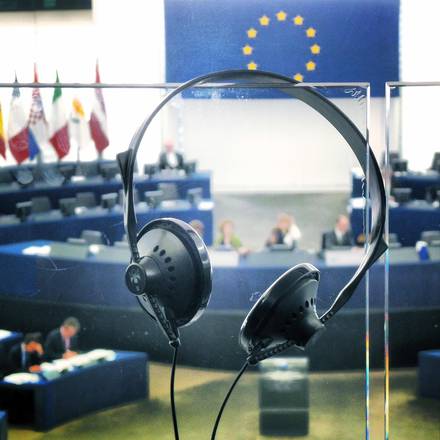Election, 'Euroskepticism' is not in the Balkans
In Slovenia, Croatia, Bulgaria, Romania critics but no hostility
23 May, 15:43In Slovenia , Croatia, Romania and Bulgaria, some dissatisfaction and criticism against Brussels can obviously be recorded , but this discontent has not turned into a visceral anti-European attitude which is widespread in other countries.
In Slovenia (EU member country since 2004, with 8 MEPs in Strasbourg), in spite of the ongoing economic crisis , the majority of the parties are consistent with to the great European political families, and there are no political movements which are openly hostile to the EU .
Perhaps the most critical position towards the Union is represented by the radical right wing party, the Slovenian National Party led by Zmago Jelincic, which is close to the Alliance of European nationalist movements.
Electoral polls , however, give Jelincic little chance. In neighbouring Croatia (last entry into the EU in July 2013, 11 MEPs ) all parties are in favour of remaining in the EU, although there is a wide debate on the ability of a fragile Union EU to push and encourage a country which has just entered the EU.
Among the most anti-Brussels politician of Brussels is Ruza Tomasic, leader of the Party of Croatian law, which sided with the conservative front. In Bulgaria (in the EU since 2007, 17 MEPs) , despite being the poorest country in the EU , the polls indicate that a majority of the population (65%) believe in the positive effects of EU accession.
The Bulgarians are confident that Brussels will help them fight against corruption, crime, high cost of living, monopolies. A similar situation can be recorded in Romania (EU member since 2007, 32 MEPs); even though enthusiasm for the vote is not excessive - only 30% is expected to go to the polls - there is a clear anti-European sentiment. On the contrary, Europe is still seen as a big chance against corruption and differences between the Balkans and Western countries. (ANSA).














